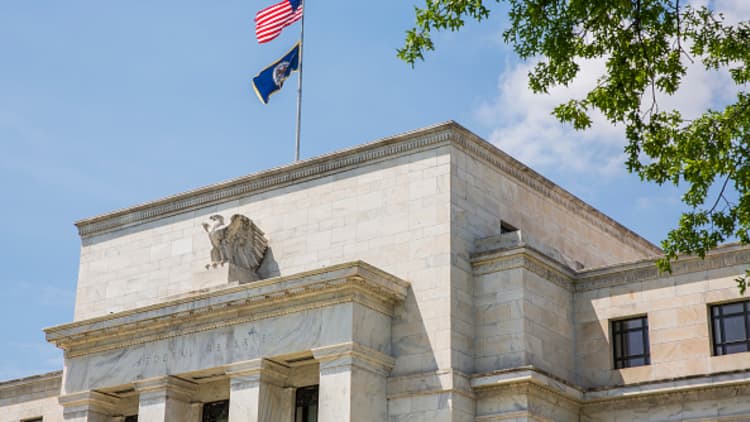
Dallas Federal Reserve President Robert Kaplan on Wednesday became the latest central banker to say it's time to let the economy run on its own.
At a time when the Fed is undergoing criticism from President Donald Trump and some notable market voices, Kaplan said policymakers are on the right track with their gradual approach to raising interest rates.
The unemployment rate is running at 3.7 percent and inflation is just above the Fed's 2 percent target. Believing that the Fed has met its dual mandate, the Federal Open Market Committee has hiked its benchmark rate three times this year and is on track for a fourth increase in December.
Kaplan said that remains the right strategy.
"As we reach our dual-mandate objectives, I believe that the Federal Reserve should be gradually easing off the accelerator — we no longer need to be stimulating the U.S. economy," he said in an essay. "As such, I believe we should be gradually and patiently moving toward a neutral policy stance."
The comments come a day after Atlanta Fed President Raphael Bostic said the Fed doesn't need " to keep our foot on the gas pedal."
Trump launched his latest broadside at the Fed and Chairman Jerome Powell in an interview Tuesday with The Wall Street Journal.
The president repeated criticism that higher rates are the biggest threat to the economic boom during his administration, and said Powell "looks like he's happy raising interest rates."
Kaplan backs further rate hikes even though he said he expects economic growth to slow in the years ahead as fiscal stimulus fades. He added that his estimate of the longer-run "neutral" late is somewhat lower than his colleagues' median estimate, but he said he's on board for at least the next several rate hikes. Kaplan favors allowing the benchmark funds rate target to rise to as high as 2.75 percent to 3 percent. The current range is 2 percent to 2.75 percent.
The current median estimate is closer to 3.1 percent, and Powell has said it may be prudent to go even a bit beyond that to tame inflation. While not a voting member on the FOMC, Kaplan does get to provide input at committee policy meetings.
"I intend to avoid prejudging what, if any, further actions we should take once we get into the range of our best estimate of a neutral stance. I intend to make that judgment sometime in the spring or summer of 2019 based on the economic outlook at that time," Kaplan said.


